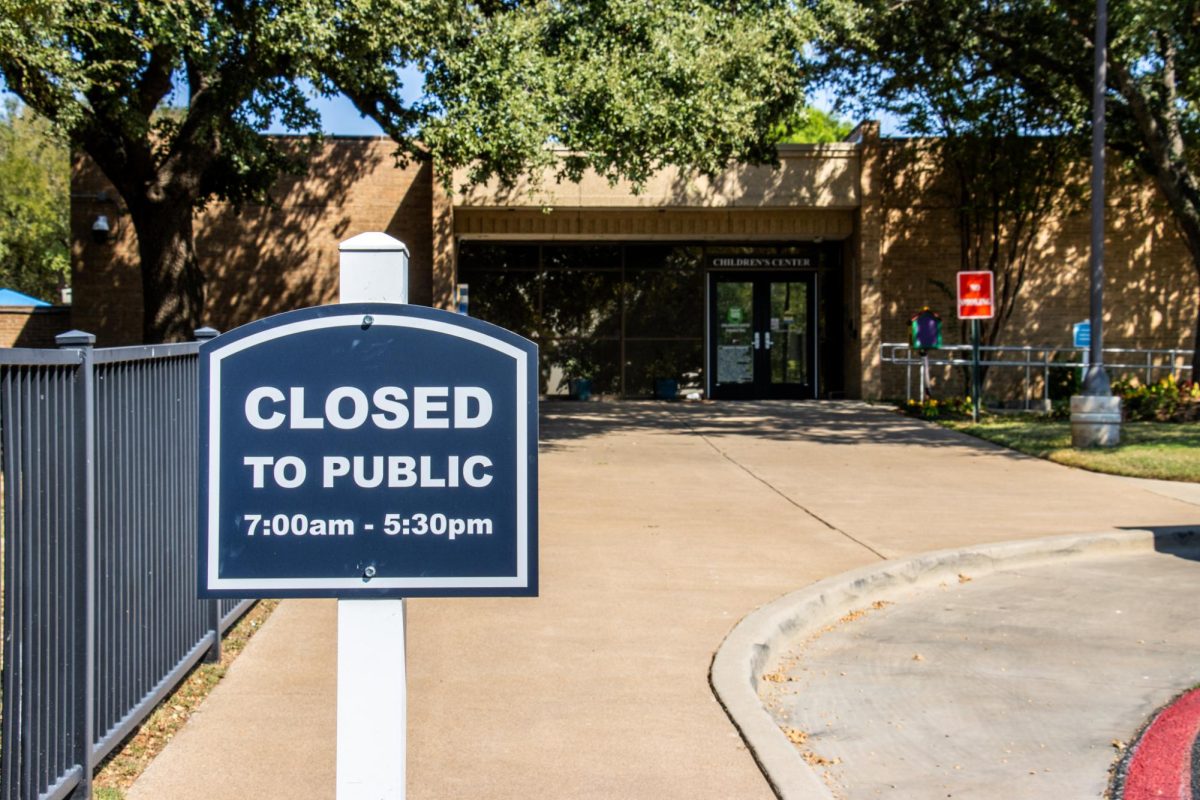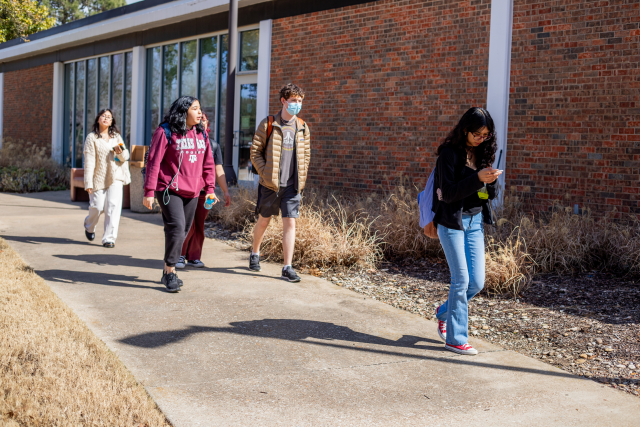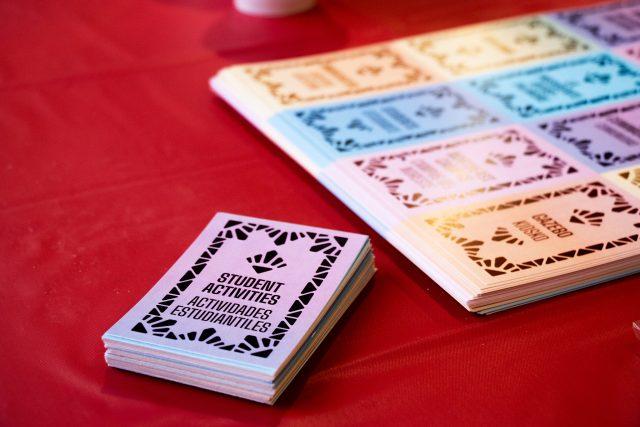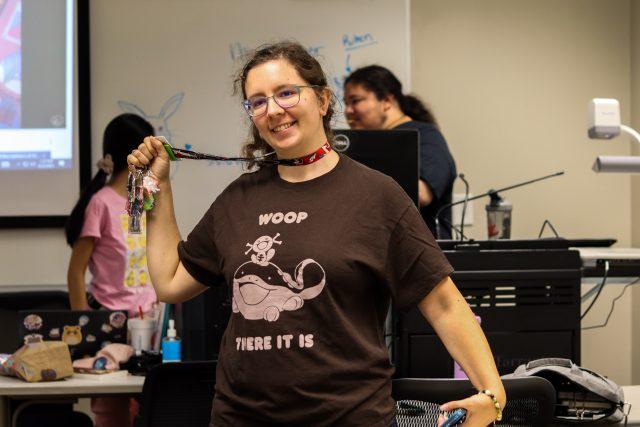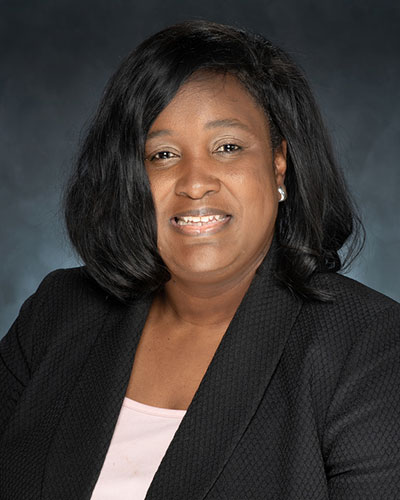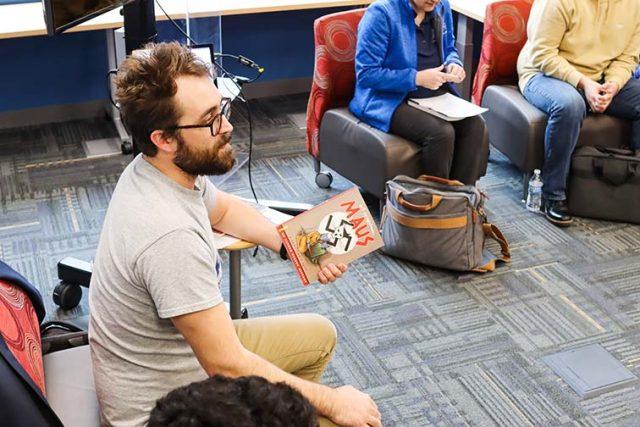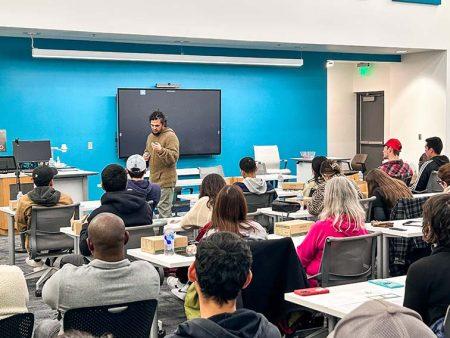
HOPE SMITH
managing editor
hope.smith393@my.tccd.edu
TCC students have mixed opinions on the use of cannabis products in Texas.
Recreational use of cannabis is prohibited in Texas. Medical use is also prohibited unless under certain exceptions like the Compassionate-Use Act, where certified physicians can prescribe low-THC cannabis to people with certain medical conditions. “Low THC-cannabis” is described as any part of the cannabis sativa L. plant and does not exceed more than one percent of the tetrahydrocannabinol (THC) weight.
Bradley Borougerdi, SE professor of history and global studies and author of “Commodifying Cannabis: A Cultural History of a Complex Plant in the Atlantic World,” explained his thoughts on people using cannabis, saying it came down to self-reflection.
“My opinion for anyone who wants to consume any substance is to educate yourself. Be aware of your cultural lens,” he said. “Ask yourself why you want to consume this. Get at the heart of when you first heard about it, what was going on in your life when you first heard about it, how you came into contact with that substance, why you want to use it.”
For NW student and Horticulture Club president Kimberly Birge, she appreciated the use of natural remedies.
“I don’t think that the cannabis plant should be illegal because it has so much benefit and it needs to be researched,” she said. “Just as in the same research that goes into microfungi, cannabis can help psychological conditions, help with body regulatory systems and not only that it helps with so many other things for us.”
NW student and Horticulture Club vice president Zane Coonsalso said legalizing cannabis would do more good in the long run for science and health.
“I think it should be legal because it’s a really big part of the economy. I mean, it can be taxed,” he said. “It’s that as well as the medical benefits, the possible benefits that we have, and if it’s legal we have a lot more motivation to do research on it.”
On the other side of the argument, TR student John Mendiola expressed his concerns on the use of cannabis as he disliked the effects it caused.
“I don’t like it because once you start smoking you do it more and you get lazier and lazier, and some people gain weight because of the munchies and whatnot, so I don’t really like it,” Mendiola said.
He said he had visited other states where cannabis had less regulation and did not appreciate the smell, noting that it was everywhere.
TR student Reese Tydlaska worked under a supervisor who ran a cannabis business in Colorado., Sand she said people she worked with, like her, were fine with cannabis and its uses.
“A lot of people can get the wrong idea about it if they are raised in a more conservative setting, be like ‘Oh my gosh, that’s so bad!,’ but I think people are more over dramatic about it than they need to be, probably because they don’t know much about it, or they haven’t had much experience with it,” Tydlaska said.
TR student and Gaming Club president Justin Aterrado said he didn’t mind the possibility of using cannabis either and discussed the argument of outlawing cannabis based on prejudices.
He said illegalizing cannabis based on how it changes a person could also be applied to many other things, yet they were not. Accountability and responsibility should be taken into account, though, he said.
“If you have a friend who’s an alcoholic, would you not want to give them the resources in order to help aid that?” Aterrado said. “I would say the same thing for marijuana.”

























